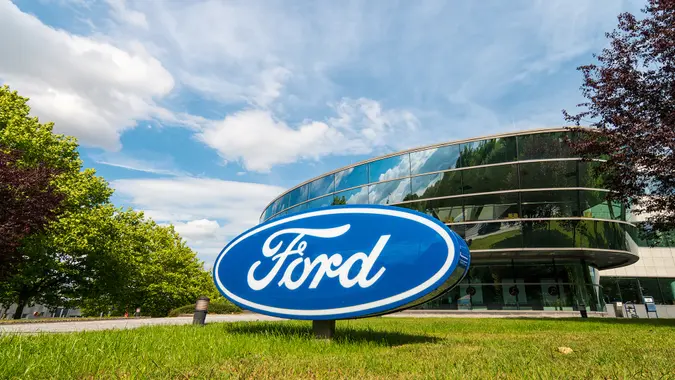Ford Motor Company is an American multinational automaker that was founded in 1903 by Henry Ford in Dearborn, Michigan. The company is headquartered in Dearborn, a suburb of Detroit. Ford is one of the largest and most profitable companies in the world, and it is the second-largest automaker in the world by sales, behind Toyota.
Ford is known for its innovative products and manufacturing techniques. The company was a pioneer in the use of assembly lines to mass-produce automobiles. Ford also introduced the Model T, which was one of the first affordable cars for the masses.
Ford now encompasses two brands: Ford and Lincoln. Ford once owned 5 other luxury brands: Volvo, Land Rover, Jaguar, Aston Martin, and Mercury. However, the company sold these brands in recent years in order to focus on its core brands.
Ford is the second-largest automaker in the world by sales, behind Toyota. The company sells automobiles and commercial vehicles under the Ford brand, and luxury cars under its Lincoln brand. Ford also owns a 32% stake in China’s Jiangling Motors. It also has joint ventures in China (Changan Ford), Taiwan (Ford Lio Ho), Thailand (AutoAlliance Thailand), and Turkey (Ford Otosan).
Ford is known for its innovative products and manufacturing techniques. The company was a pioneer in the use of assembly lines to mass-produce automobiles. Ford also introduced the Model T, which was one of the first affordable cars for the masses.
Ford has faced some challenges in recent years, including the financial crisis of 2008 and the ongoing trade war between the United States and China. However, the company has remained profitable and continues to invest in new products and technologies.
Ford is committed to sustainability and has set ambitious goals to reduce its environmental impact. The company is investing in electric vehicles, renewable energy, and other technologies that will help it achieve its sustainability goals.
As a trailblazer in mass production and a pioneer of the modern automobile, Ford has left an indelible mark on the way the world moves. However, the road to success in this dynamic sector is paved with competition and innovation. In this article, we embark on a journey of spotlight its top 10 competitors and alternatives that keep the automotive ecosystem in a constant state of evolution.
Top 10 Competitors and Alternatives of Ford Motors
In the dynamic world of the automotive industry, competition is fierce, and innovation is the driving force that propels companies forward. Ford Motor Company, a trailblazer in the realm of automobiles, has encountered numerous competitors and alternatives that have contributed to the industry’s ever-evolving landscape. Let’s dive into the details of Ford’s top 10 direct competitors and alternatives, examining their strategies, offerings, and impact on the automotive sector:
1. General Motors (GM)

General Motors, a fellow American automotive giant, competes with Ford across a wide spectrum of vehicles. Its portfolio includes Chevrolet, offering popular models like the Silverado truck and the Equinox SUV, as well as luxury offerings through Cadillac and rugged utility with GMC.
Strengths: General Motors boasts a diverse portfolio of brands like Chevrolet, Cadillac, and GMC, catering to various market segments. Their strong presence in trucks and SUVs, particularly with the Silverado and Tahoe, gives them a competitive edge. GM’s focus on electric vehicles (EVs), including the upcoming GMC Hummer EV and Chevrolet Bolt, showcases their commitment to innovation.
2. Toyota Motor Corporation
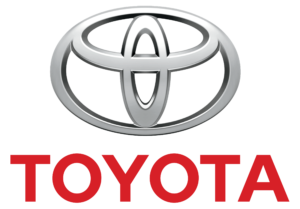
Toyota’s reputation for reliability and fuel efficiency positions it as a direct competitor to Ford. The Toyota Camry, a midsize sedan, has been a consistent performer, while the Toyota RAV4 and Highlander cater to the SUV market, highlighting Toyota’s commitment to diverse consumer preferences.
Strengths: Toyota is renowned for its reliability and efficient vehicles. Their hybrid technology, pioneered by the Prius, provides an edge in the eco-friendly market. With models like the Camry, Corolla, and RAV4, Toyota appeals to a wide range of consumers looking for durable vehicles with high resale value.
3. Volkswagen Group
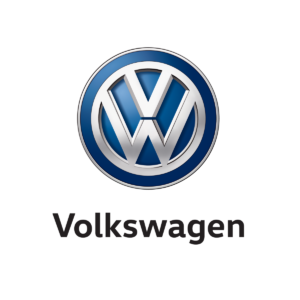
Volkswagen Group’s extensive lineup ranges from practical vehicles under the Volkswagen brand to luxury options via Audi and Porsche. Volkswagen’s Golf and Passat models compete in the compact and midsize segments, while Audi’s A4 and A6 offer a luxury alternative to Ford’s offerings.
Strengths: Volkswagen offers a broad spectrum of vehicles through brands like Volkswagen, Audi, and Porsche. Their focus on electrification, exemplified by the ID.4 electric SUV, positions them as contenders in the evolving EV market. Audi’s reputation for luxury and performance further enhances the group’s competitive advantage.
4. Honda Motor Co., Ltd.
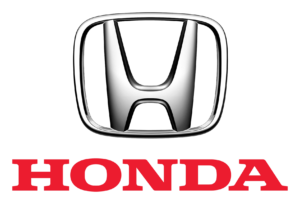
Honda is known for its engineering prowess and reputation for producing reliable vehicles. The Honda Accord and Civic stand as competitive alternatives in the sedan segment, and the CR-V and Pilot SUVs cater to the utility-focused market.
Strengths: Honda is known for engineering excellence and durability. The Accord and Civic sedans, coupled with the CR-V SUV, offer practicality and fuel efficiency. Honda’s motorcycle division also adds to their diversified portfolio, showcasing their innovation beyond four-wheelers.
5. Nissan Motor Corporation
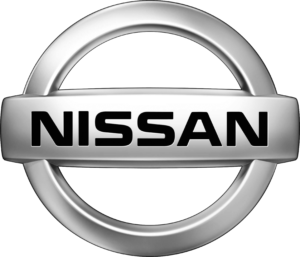
Nissan’s diverse portfolio includes the popular Altima and Sentra sedans, the Rogue SUV, and the Leaf electric vehicle. Nissan’s commitment to innovation is evident in features like ProPILOT Assist, showcasing its technological edge.
Strengths: Nissan’s innovative technologies, like ProPILOT Assist and e-Power hybrid, give them a competitive edge. The Rogue and Pathfinder SUVs contribute to their strength in the crossover market. Their commitment to electric vehicles is exemplified by the popular Nissan Leaf.
6. Hyundai Motor Company
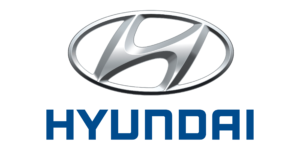
Hyundai’s value-focused approach appeals to consumers seeking affordability without sacrificing features. The Hyundai Sonata competes in the midsize sedan segment, while the Tucson and Santa Fe SUVs cater to those looking for practical utility.
Strengths: Hyundai’s value-driven approach, combined with modern designs and advanced features, appeals to budget-conscious consumers. Their SUV lineup, including the Tucson and Santa Fe, caters to the growing SUV demand. Hyundai’s growing EV offerings, like the Kona Electric, establish their presence in the electric segment.
7. Stellantis N.V. (formerly FCA – Fiat Chrysler Automobiles)

Stellantis, born from the merger of Fiat Chrysler Automobiles and Peugeot S.A., offers brands like Jeep, known for its rugged off-road capability; Ram, offering trucks and commercial vehicles; and Chrysler, which presents a mix of sedans and minivans.
Strengths: Stellantis offers a diverse array of brands, with Jeep’s off-road capability and Ram’s trucks being notable strengths. The iconic Jeep Wrangler and the Ram 1500 have cultivated loyal fan bases. Stellantis’ commitment to electric vehicles, such as the upcoming all-electric Jeep Wrangler, marks their progress in sustainable mobility.
8. BMW Group
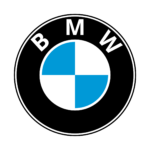
BMW is synonymous with luxury and performance, appealing to consumers seeking a premium driving experience. Models like the 3 Series and 5 Series sedans, along with the X5 SUV, emphasize sporty dynamics and advanced technology.
Strengths: BMW’s reputation for luxury, performance, and innovative technology is a cornerstone of their brand. Models like the 3 Series and X5 embody driving dynamics and advanced features. The BMW i sub-brand focuses on electric mobility, exemplified by the BMW i3 and iX models.
9. Mercedes-Benz (Daimler AG)

Mercedes-Benz stands as a symbol of opulence and innovation, competing across various luxury segments. From the C-Class sedan to the GLE SUV and the sleek E-Class coupe, Mercedes-Benz offers a sophisticated and technologically advanced lineup.
Strengths: Mercedes-Benz is synonymous with luxury and innovation. Their advanced technology, comfort features, and prestigious image attract discerning buyers. The E-Class, S-Class, and GLE SUV highlight their commitment to luxury and cutting-edge technology.
10. Kia Corporation
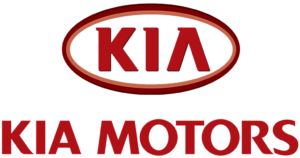
Kia, a subsidiary of Hyundai, has carved a niche as a value-driven brand with contemporary designs. The Kia Forte and Optima sedans, as well as the Sportage and Sorento SUVs, embody Kia’s commitment to providing modern features and affordability.
Strengths: Kia’s combination of affordability and modern design has garnered a strong following. The Kia Forte and Optima (now known as K5) compete in the sedan segment, while SUVs like the Sportage and Sorento cater to utility seekers. Kia’s warranty program and value proposition contribute to their competitive advantage.
The competitors of Ford Motors form a complex and diverse web of choices for consumers in the automotive market. Each competitor brings its unique strengths, innovations, and brand appeal, ensuring that consumers have a wide range of options to suit their preferences, lifestyles, and budget considerations. This fierce competition fosters continuous innovation, driving companies like Ford and its rivals to deliver vehicles that cater to the ever-evolving demands of consumers around the world.
In today’s competitive automotive market, brands are offering customized promotional gifts, such as customized stickers, customized pins, or luggage tags, to strengthen relationships with consumers, enhance brand image and increase loyalty.

Custom Luggage Tags not only serve a practical function, but also subtly incorporate the owner’s personal style, demonstrating his or her love for the brand and sense of belonging. The ability to customize nicknames, logos, and color schemes not only satisfies consumer demand for personalized products, but also allows the brand to accurately reach its target audience and enhance the brand’s unique value in the minds of consumers. The clever use of customized luggage tags as a peripheral product can build a positive and lasting brand image in the minds of consumers.
Also Read: Navigating Luxury Lanes: Mercedes-Benz Top 10 Competitors
To read more content like this, subscribe to our newsletter

